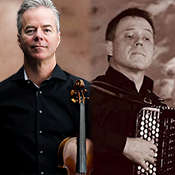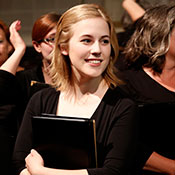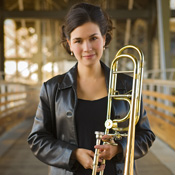
Conductor Enrico Lopez-Yañez Brings Latin Fire to MSO
David Lewellen
PUBLISHED
Tagged Under: 2023.24 Season, Conductor, Guest Artist
A two-hour survey of the entirety of Latin music is a daunting task — but Enrico Lopez-Yañez has more where that came from.
Lopez-Yañez will lead the Milwaukee Symphony Orchestra in a pops program titled “Latin Fire” on May 31-June 2. The program will cover many different genres, including tango, pop, and even an excerpt from Bizet’s opera Carmen, which is famously set in Spain.
“The great thing about symphony music is that it’s not just classical,” he said. “They are the most flexible ensemble on the planet. Sixty or seventy highly trained musicians — it’s a beautiful representation of people coming together from different backgrounds and creating something that no one could do on their own.”
In addition to being the principal pops conductor of several major orchestras, he has formed his own company to take concerts on the road to other orchestras. “The whole point is finding new ways to reach out,” he said. “It’s all entertainment, bringing out the inner child in all of us. Sometimes we get the audience on their feet, we encourage them to dance, we bring them onstage.”
At this point, Lopez-Yañez has “eight or nine” pops shows ready to be booked by orchestras around the country. The newest is a more narrowly focused collection of Latin pop from the ’90s and ’00s, but he speaks enthusiastically about his disco program, which focuses on music and ignores fashion. Many disco tunes rest on a foundation of string and brass sound, he pointed out.
“Latin pop music is a lot of different things,” said trumpeter José Sibaja, a featured soloist on the MSO program along with singer Mónica Ábrego. “Tango, mariachi, straight pop, Latin folk” — in fact, he sees Italian pop influence in modern Latin music.
Sibaja is classically trained, but as a young man, “I decided the whole orchestra thing was not for me, sitting in the back and counting rests.” He had a successful career in other genres, including eight years in Ricky Martin’s band, “but I got tired of the pop world, too.”
Now he has a varied professional diet, including quintet work and jazz, but he said, “Playing the trumpet is playing the trumpet. You play as well as you can every day and keep adding to your inner hard drive.”
Lopez-Yañez, who is Mexican by birth, said, “When I was slightly younger, I was nervous about being typecast as the person who only understood Mexican music. But I’m proud to share the heritage that shaped me as an artist.” Most major U.S. cities, including Milwaukee, have large Hispanic populations that rarely get to hear their own music performed in a symphonic setting, and “it’s lovely to share our culture.”
A Latin program is an opportunity to broaden an orchestra’s base of support. “This music is very natural to the people of Latin American origin,” Lopez-Yañez, said, “but it’s also very accessible and exciting to people who aren’t.” The elements that make up that sound, he said, come from the Indigenous people of the region, as well as plenty of African and European influences.
“We can do so much as artists” to bring in new audiences, Sibaja said. “There’s an opportunity for growth, not only for Latin music but for music in general.” But, he continued, “Whenever we can educate people, we should. As an oboe player, maybe you’ve never played the blues in your life, and you lack the understanding that blues is a huge part of the music of your country, the United States. Orchestras need to be more inclusive in style to bring more people into the hall.” He praised Lopez-Yañez for “making people comfortable so they understand what’s going on.”
After playing a supporting role in so many genres, “it’s really fun to be at the front of the stage,” Sibaja said. “You can’t just sit back and play your part. You have to bring the audience closer to you. That’s why I started playing music, to unite and gather people.”



